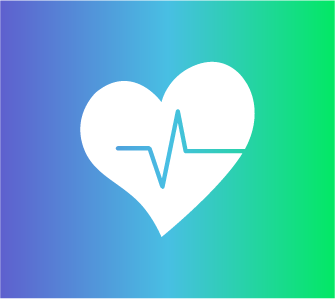For college students going into a professional field, networking is critically important, above nearly anything else. You need to have connections to get better jobs, find investment opportunities, and establish a practice. Professional networking provides a peer group to exchange ideas and socialize with.
So why are doctors finding it hard to network in 2022, when the world is more connected than ever? Burnout is at an all-time high, and physicians are leaving the profession to seek less stressful occupations. Those who are in effective networks, however, are faring significantly better.
Physician networking can be key to helping you manage stress, improve your career, and enhance your overall quality of life. Let’s explore why networking is important and how to leverage it effectively.
Why physician networking is important
Doctors with a peer group are more likely to stay updated on trends in the medical field. Having a network can enable doctors to change practices, add patients, receive referrals from other physicians, and expand their practice. It also offers opportunities for freelance consultation to increase revenue or for finding help in managing a patient pool.
Outside of work, physician networking can provide answers to questions about retirement, investing, and other financial matters. While family and friends offer one perspective, networking with other doctors provides insights grounded in similar professional experiences. Other physicians are keenly aware of the unique challenges faced by doctors and can provide advice rooted in firsthand knowledge.
Networking also keeps you informed of trends in your medical field or specialty. For instance, as telehealth grows, discussing it with peers can help you decide if it’s worth implementing in your practice. Staying informed in a shifting medical landscape is easier with a reliable network.
Strategies for networking
Networking isn’t as simple as attending a few conferences. Building a network that advances your career and financial goals involves intentional actions and being in the right places. While conferences and healthcare functions can introduce you to like-minded professionals, deliberate actions often yield better results.
Consider your goals. If you want to expand your practice, attend conferences focused on your specific concerns within the medical field. Specialists, for instance, should look for meet-ups specific to their niche.
Don’t limit yourself to medical conferences alone. If your goal involves financial aspects—like practice expansion or retirement planning—financial conferences might be more helpful. Truly understanding your goals helps you network more effectively.
Consider online networking
There are numerous online networks specifically for physicians. LinkedIn is excellent for professional needs like marketing and development, while platforms like Sermo are tailored specifically for medical professionals.
If you’re involved in telehealth or partnered with a telehealth provider, networking opportunities may be available through the platform itself. Joining relevant associations also offers access to virtual or in-person meetings where you can connect with other physicians.
Talk to your peers
If you work in a business setting or hospital, discuss these topics with work friends and colleagues. Most doctors face the same stresses and burnout you do and have similar questions about the future. Some may be contemplating field changes, while others are transitioning from clinical settings to research. The knowledge within your existing network is valuable and often the most accessible resource.
Connecting with a purpose
Networking shouldn’t stop once you start your career. Continuing education is crucial for physicians, both regarding specialization and long-term concerns like finances or retirement.
Lean into your current connections, and also branch out at conferences, through associations, or online. The effort you put into networking can bring significant returns, whether you’re looking to expand your business, prepare for life changes (like retirement), or expand into telehealth and virtual medicine.
If you’re considering telehealth, ViTel can show you how beneficial it can be for you, your stress levels, and your practice. In addition to managing patient data and intake, our platform offers a robust network of clinicians for you to connect with.
The exchange of ideas strengthens our healthcare system, and ViTel is here to support you. If you’re interested in a free demo to see how a well-structured telehealth platform can enhance your practice, we’re here to help!






